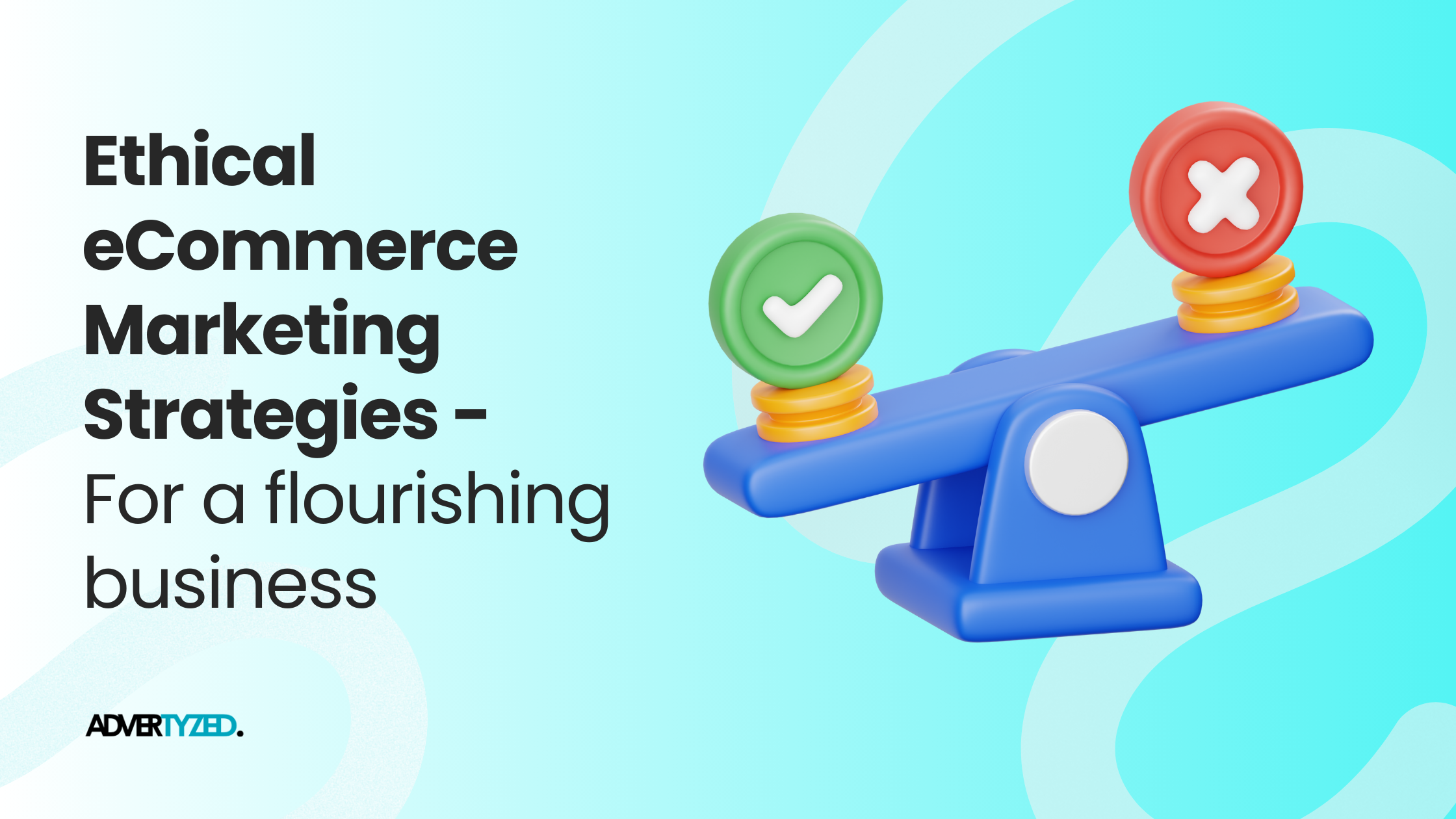In the ever-evolving world of e-commerce, marketing professionals and business owners face the challenge of driving growth while upholding ethical principles. Ethical marketing is not just a buzzword; it’s a fundamental approach that builds trust and loyalty with customers. In this critique, we will explore E-Commerce marketing strategies in the industry and outline the key components of an effective strategy that aligns with responsible business practices.
6 digital marketing strategies for e-commerce businesses:
Here are 6 digital marketing strategies for E-Commerce Business:
Authenticity and Transparency
At the heart of ethical marketing lies authenticity and transparency. Marketing professionals should resist the temptation to resort to deceptive tactics for quick gains and focus on showcasing the genuine value of their products or services. Embracing transparency in every aspect of your marketing is one of the best E-Commerce marketing strategies. From product descriptions to pricing and customer reviews. Consumers appreciate honesty, and it fosters long-term trust, leading to stronger brand loyalty.
Customer-Centric Approach
A successful e-commerce marketing strategy revolves around putting customers first. Thoroughly understand their needs, preferences, and pain points through market research and customer feedback. Tailor your marketing efforts to address these specific needs, demonstrating a genuine interest in enhancing their lives or solving their problems. By empathizing with your target audience, you can create meaningful connections that drive engagement and foster brand advocacy.
Privacy and Data Protection
Responsible marketing professionals prioritize data protection and customer privacy. Obtain explicit consent before collecting any personal information and invest in robust security measures to safeguard this data from unauthorized access or breaches. Respecting your customers’ privacy is vital for building trust, as data breaches or misuse can have severe consequences for your brand reputation.
Social and Environmental Responsibility
Integrate social and environmental responsibility into your e-commerce marketing strategy. Highlight your sustainable practices, fair trade initiatives, or charitable partnerships. Consumers increasingly seek to support businesses that contribute positively to society and the environment. Use your marketing platforms to educate and inspire positive change, showing your commitment to making a difference beyond profits.
Engage and Educate
Engage your audience by providing valuable, educational content through blog posts, webinars, or social media. Position your brand as an industry authority and build rapport with potential customers by offering useful insights and expertise. Remember, an ethical e-commerce marketing strategy goes beyond transactional relationships. It helps customers make informed decisions and view your brand as a reliable resource.
Building Long-Term Relationships
Ethical marketing prioritizes building long-term relationships over one-time sales. Implement loyalty programs, customer appreciation campaigns, or personalized offers to encourage repeat business. Nurture your existing customer base and turn them into loyal brand advocates who promote your products or services to others. Word-of-mouth marketing from satisfied customers is invaluable and boosts your brand’s credibility.
Parting Note:
Above mentioned 6 digital marketing strategies for e-commerce businesses are crucial for long-term business growth in e-commerce, balancing revenue maximization and credibility. It involves authenticity, customer centricity, privacy, honesty, social responsibility, education, and long-lasting partnerships. Ethical marketing positively impacts society and the environment, fostering a positive brand image and treating clients with respect.


